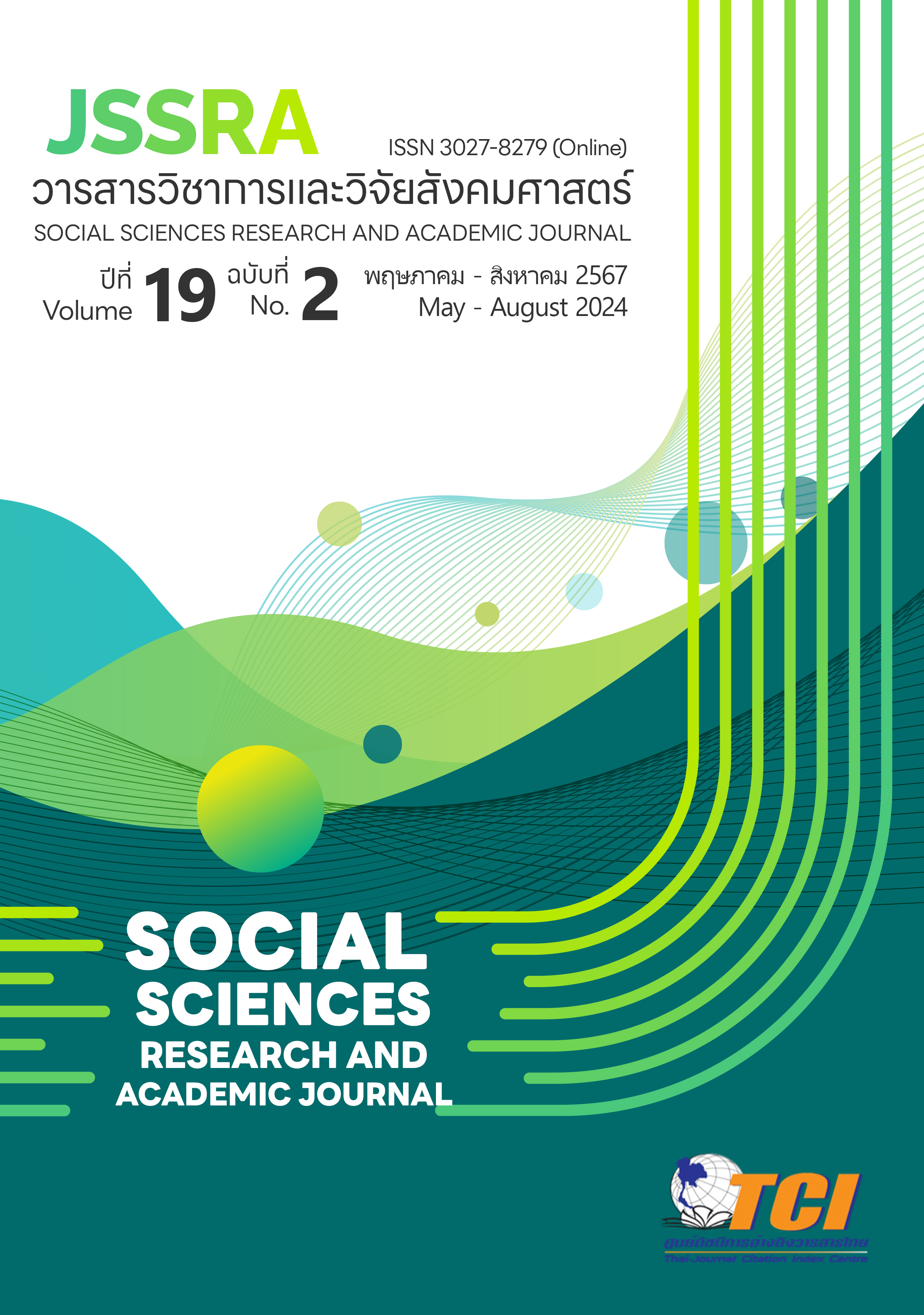The Proactive Identification of Impoverished Households Based on Civil Society Process for Comprehensive and Accurate Approaches to Combat Poverty in Tha Li District, Loei Province
Main Article Content
Abstract
This research article aimed to present the results process of proactively searching for impoverished households using the civil society process to lead to a complete and accurate solution to the poverty problem at the Tha Li district, Loei Province. Data was then analyzed based on the Sustainable Livelihood Framework. The main objective of this study was to support the development of a poverty data system, integrate existing datasets, track aid efforts in Loei, analyze impoverished household data, and foster area-based developmental mechanisms to combat poverty in Tha Li District, Loei Province. This undertaking employed survey research alongside Participatory Action Research (PAR), engaging a group of 560 impoverished households.
The results of this research showed that: 1) Data verification resulted in a remaining count of 306 households by civil society process. Furthermore, 153 newly identified impoverished households were surveyed, summing up to 459 by civil society process and impoverished households. 2) The data analysis, guided by the Sustainable Livelihood Framework revealed that across five dimensions of household potential in Tha Li District that the highest score was attributed to human capital (2.48) followed by physical capital (2.43), economic capital (2.02), natural capital (1.87), and the lowest score in social capital (1.76). As a result, the working group has outlined comprehensive approaches to combat poverty classifying the impoverished households into 2 groups. The first group contained working-age households which were assisted with the poverty alleviation initiative called “Economic Thrives, Enrich Lives with Bamboo”. The second group consisted of elderly or vulnerable households assisted with strategies to enhance their quality of life through collaborative network efforts.
Article Details
References
Baumann, P. and Sinha, S. (2001). Linking Development with Democratic Processes in India: Political Capital and Sustainable Livelihoods Analysis. Overseas Development Institute: Natural Resources Perspectives. pp. 8: 1-5.
Community Development Department. (2020). Thai People Map and Analytics Platform : TPMAP for Administration and Community Development. Retrieved january 20, 2022, from https://www.cdd.go.th/wp-content/uploads/sites/ 110/2020/04/0405-6-v0955.rar. (In Thai).
Kiatsongchai, S., Pruksa, S., Maliton, W., Phetkanchanapong, P., Soisuwan, K., Inthawong, R. et al. (2021). Research for precise poverty alleviation in Loei province Loei: Loei Rajabhat University. (In Thai).
Kollmair, M. and Gamper, S. (2002). The Sustainable Livelihoods Approach. Input Paper for the Integrated Training Course of NCCR North-South. Aeschiried, Switzerland, (pp. 1-11). 9-20 September 2002. Development Study Group, University of Zurich.
Lueangaramsri, P. (2011). Concept of Living Livelihoods. Chiang Mai: Academic Development Fund Faculty of Social Sciences, Chiang Mai University. (In Thai).
Saruno, S. (2001). Research and Development of Agricultural Systems to Improve Agricultural Systems in Small Farmers. in Documents for the Academic Seminar on Research and Development Agriculture in the Southern Region. 14th-16th February 2001. Krabi: Maritime Hotel. (In Thai).


